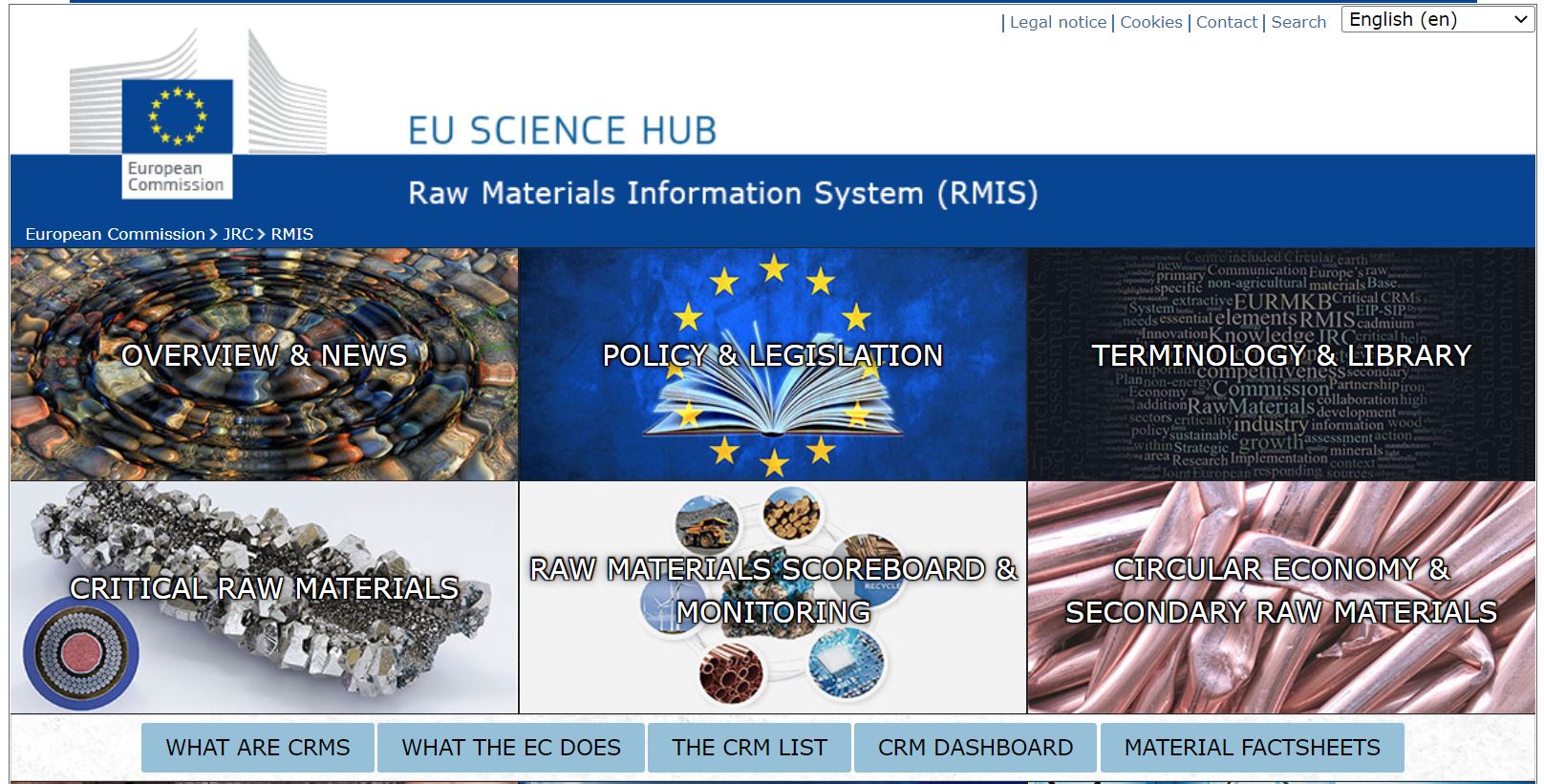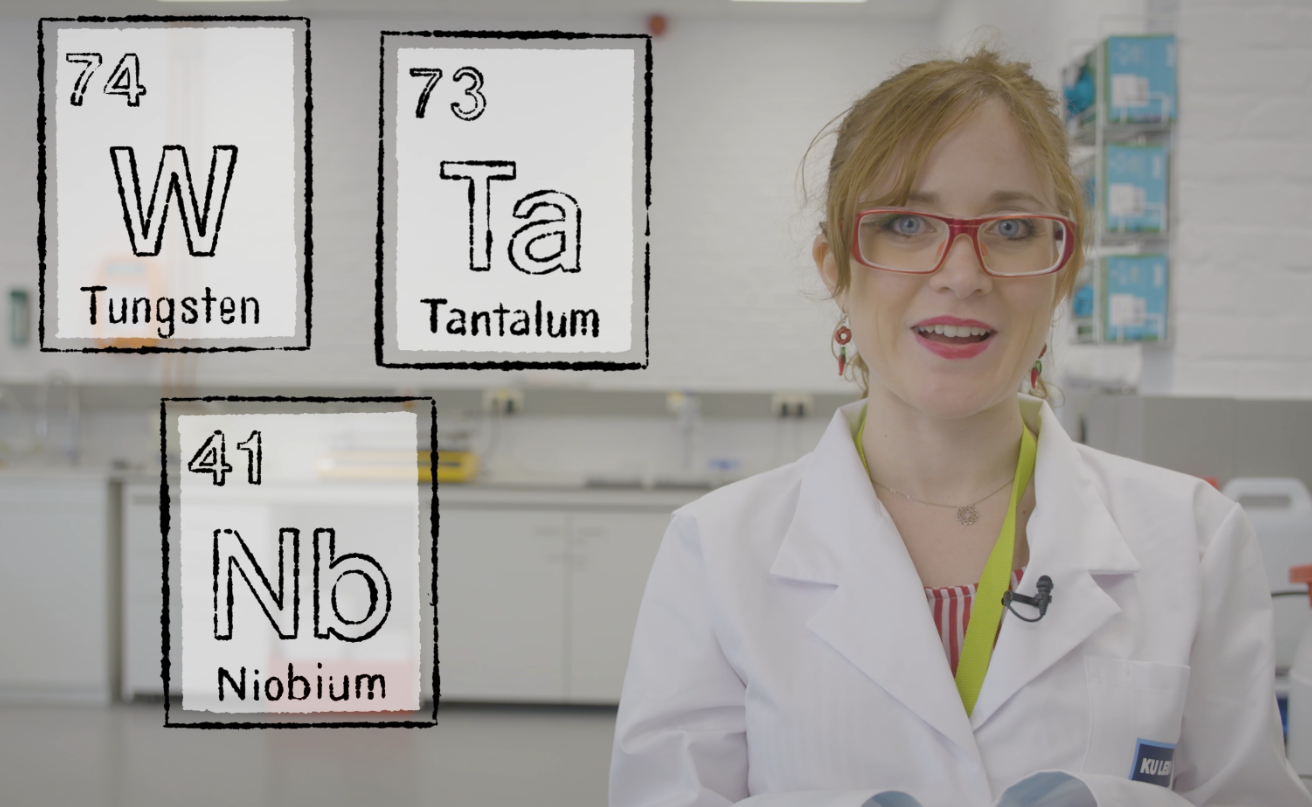TARANTULA was present at the Raw Materials Information System (RMIS) workshop of December 3, 2020. ICAMCYL researchers learned first-hand from the EU commissioners about the Background of RMIS & general IT-related recommendations to channel the knowledge generated in TARANTULA towards RMIS in the most efficient way.
TARANTULA was present at the last Raw Materials Information System (RMIS) workshop. The workshop was jointly organised by JRC (Joint Research Centre) and EASME (European Agency for Small and Medium Enterprises) and took place virtually on December 3rd, 2020.
ICAMCYL researchers learned first-hand from the EU commissioners about the Background of RMIS & general IT-related recommendations to channel the knowledge generated in TARANTULA towards RMIS in the most efficient way.
[This article has been written by Juan Riaza, León, ICAMCYL, 04/12/2020]
About the workshop: “Channelling knowledge from European projects into the Raw Materials Information System (RMIS)”
As announced in a previous post, ICAMCyL took part of the last RMIS Workshop entitled “Channelling knowledge from European projects into the Raw Materials Information System (RMIS)” on December 3, 2020. The Raw Materials Information System (RMIS) is an instrument of the European Commission, developed by the Directorate-General (DG) Joint Research Centre (JRC) in cooperation with the DG for Internal Market, Industry, Entrepreneurship and SMEs (GROWTH).
The RMIS is the Commission’s reference web-based knowledge platform on non-fuel, non-agricultural raw materials from primary and secondary sources and provides an overview of the European raw materials context.
The workshop continues the well-established dialogue between the JRC with EU-funded projects such as the H2020-RIA-TARANTULA in relation to the Raw Materials Information System (RMIS). The event brought together key representatives of the European Commission, JRC, EASME and RMIS leaders as well as representatives of a total of 12 EU-funded projects.
Participants discussed the most relevant knowledge needs on raw material value chains (both primary and secondary). There was an interesting plenary discussion among the participants on how to increase awareness of project outputs and how best these can support the RMIS developments.
During the workshop, a special focus was given to the technical / IT requirements needed to facilitate the efficient knowledge transfer from H2020 projects to RMIS. This is key for an optimum interaction between TARANTULA and the EU JRC to cooperate for the RMIS development. In particular, it has been defined how to generate and transfer valuable project data, according to the FAIR principles, and how to proceed at the best for the knowledge transfer.
TARANTULA will feed the RMIS with the most relevant findings and research results from the project. ICAMCYL presented plans to provide novel data for RMIS, correlated with an outline of the project and of the expected results. The TARANTULA data will be exploited by the EC to develop future policy and strategies for EU sustainable development, including such as the ‘EU criticality assessment’, the Material System Analysis (MSA) study and the Raw Materials (RM) Scoreboard.
About the Raw Materials Information System (RMIS)
The RMIS responds to the need of strengthening the European Union Raw Materials Knowledge Base and acts as the core access point to such expertise and as interface for policy support. They also provide a structured repository of knowledge and support regarding the legislations of EU Community and Member States. In particular, the EC RMIS defines further needs, gaps and recent national legislation updates in the EU Member States. The overarching goal of the RMIS is to facilitate:
- The availability, coherence and quality of know-how required by specific EU raw materials policies and EC services.
- The knowledge needs of the EU criticality assessment, the Raw Materials Scoreboard, trade, defence, Circular Economy, due diligence/conflict minerals and other raw materials specific policies.
- Access to key raw materials information, within and beyond Europe, which complements the know-how currently essential for policy support.
Fulfilling the wide range of Union Raw Materials Knowledge Base requires a broad spectrum of different knowledge providers such as national, European and global stakeholders. Horizon 2020 projects as TARANTULA are at key players to this goal. Within TARANTULA, ICAMCYL is the leader of the tasks about stakeholder analysis and identification of related projects. For that reason, ICAMCYL took the lead to start working with RMIS to build a collaboration that will last through the TARANTULA project. Y
Do you want to know more?
Don’t miss TARANTULA on the ‘Raw materials knowledge gateway’ section at RMIS website and check out why tungsten, niobium and tantalum are critical in a previous article. Find all the output from the RMIS workshop of 03 December 2020 here. Stay tuned with the TARANTULA newsletter: https://h2020-tarantula.eu/newsletters-policy-briefs/
ACKNOWLEDGEMENTS
The TARANTULA project received funding from the European Union's EU Framework Programme for Research and Innovation Horizon 2020,Grant Agreement no. 821159. This work reflects only the team views, exempting the Commission from any liability.







